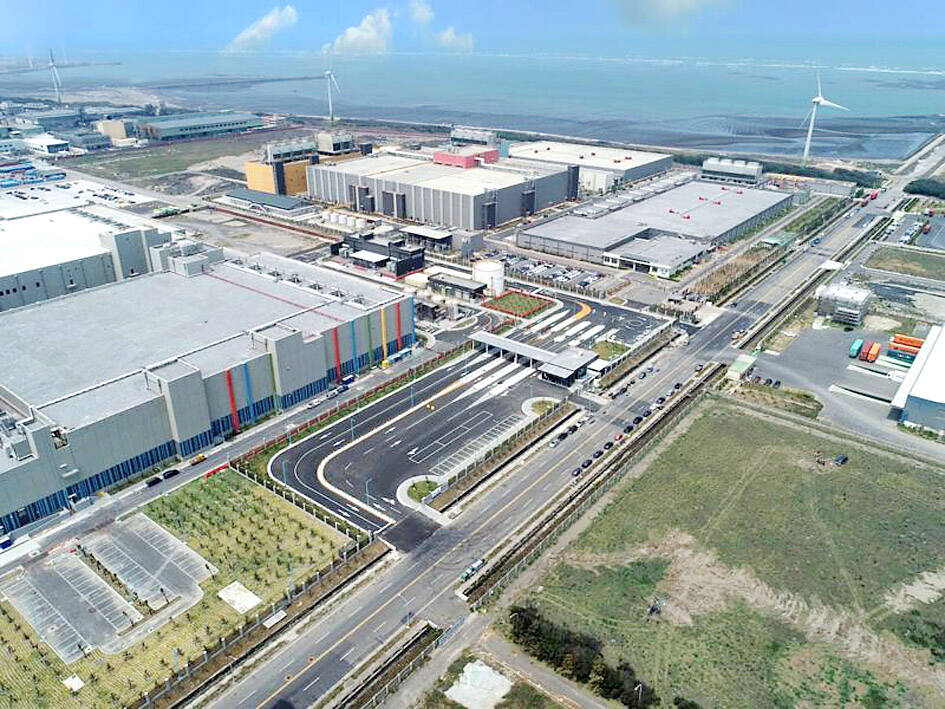US-based tech giant Google said yesterday that its efforts to build four underseas cables to connect Taiwan with the world had created more than 64,000 jobs and generated about US$26 billion in GDP for Taiwan as of 2021.
The US company has transformed Taiwan into a strategic cloud infrastructure hub in the world.
The four undersea cables are part of the company’s investments in cloud infrastructure in Taiwan, and on the back of the undersea cables, a data center and a Google Cloud Region, which is a geographic area in which Google provides infrastructure and services for deploying applications, Google said in a statement.

Photo courtesy of Google
Google will continue its “Intelligent Taiwan” plan by investing more in cloud infrastructure in the country, with an aim to build Taiwan as the Silicon Valley in Asia, the company added.
According to Google, the four undersea cables include the FASTER cable, which connects Taiwan and Japan, and the Pacific Light Cable Network (PLCN), which connects Hong Kong, Taiwan, the Philippines and the US.
The company’s Apricot cable to connect Japan, Guam, the Philippines, Taiwan, Singapore and Indonesia is slated for operations in 2024, and the cable is using advanced multicore fiber (MCF) made Tensor Processing Units (TPUs).
MCF is designed to offer higher bandwidth capacity compared to traditional single-core optical fibers, enabling the transmission of more signals simultaneously over optical fiber, Google said.
In 2013, Google inaugurated a data center in the Changhua Coastal Industrial Park (彰濱工業區) of Changhua County by investing US$600 million to allow Taiwan to have the first Google data center in the Asia Pacific region.
This year, Google celebrated the 10th anniversary of the data center, and Gary Demasi, senior vice president of the company’s global data center operations, said in the statement that Google’s centers serve as the foundation for the company to achieve its goal to “make AI helpful to everyone.”
During the past decade, Google has delivered on its promise to build a data center in Taiwan and meet the demand for users in the region and around the world, while its investments in Taiwan have given a boost to the local economy and enhanced sustainability and progress in the local community, Demasi said.
Although demand for computing applications is on the rise, the Google data center still is able to make itself more energy efficient, Google said, adding that its facility is about 150 percent more energy efficient than its counterparts built by other companies.
The data center is able to save about 10 percent in power consumption while cutting carbon emissions by about 10 percent, it said.
In addition to the data center, the Google Cloud Region in Taiwan, which is also the first of its kind in the Asia Pacific region, celebrated its 10th anniversary. Google said the facility has provided strong support to its enterprise clients.

Nvidia Corp chief executive officer Jensen Huang (黃仁勳) on Monday introduced the company’s latest supercomputer platform, featuring six new chips made by Taiwan Semiconductor Manufacturing Co (TSMC, 台積電), saying that it is now “in full production.” “If Vera Rubin is going to be in time for this year, it must be in production by now, and so, today I can tell you that Vera Rubin is in full production,” Huang said during his keynote speech at CES in Las Vegas. The rollout of six concurrent chips for Vera Rubin — the company’s next-generation artificial intelligence (AI) computing platform — marks a strategic

REVENUE PERFORMANCE: Cloud and network products, and electronic components saw strong increases, while smart consumer electronics and computing products fell Hon Hai Precision Industry Co (鴻海精密) yesterday posted 26.51 percent quarterly growth in revenue for last quarter to NT$2.6 trillion (US$82.44 billion), the strongest on record for the period and above expectations, but the company forecast a slight revenue dip this quarter due to seasonal factors. On an annual basis, revenue last quarter grew 22.07 percent, the company said. Analysts on average estimated about NT$2.4 trillion increase. Hon Hai, which assembles servers for Nvidia Corp and iPhones for Apple Inc, is expanding its capacity in the US, adding artificial intelligence (AI) server production in Wisconsin and Texas, where it operates established campuses. This

Garment maker Makalot Industrial Co (聚陽) yesterday reported lower-than-expected fourth-quarter revenue of NT$7.93 billion (US$251.44 million), down 9.48 percent from NT$8.76 billion a year earlier. On a quarterly basis, revenue fell 10.83 percent from NT$8.89 billion, company data showed. The figure was also lower than market expectations of NT$8.05 billion, according to data compiled by Yuanta Securities Investment and Consulting Co (元大投顧), which had projected NT$8.22 billion. Makalot’s revenue this quarter would likely increase by a mid-teens percentage as the industry is entering its high season, Yuanta said. Overall, Makalot’s revenue last year totaled NT$34.43 billion, down 3.08 percent from its record NT$35.52

OPPORTUNITY: Supply of conventional DRAM chips tightened after the world’s major memory makers focused on manufacturing chips utilized in AI servers DRAM chipmaker Nanya Technology Corp (南亞科技) yesterday reported a spike in revenue for last month, as severe supply constraints prompted chip price hikes, almost doubling the company’s annual revenue last year from the previous year. Revenue soared 444.87 percent last month to NT$12.02 billion (US$381.4 million), from NT$2.21 billion a year earlier. That brought fourth-quarter revenue to NT$30.17 billion, from NT$6.58 billion for the same period in 2024. On a quarterly basis, revenue jumped 60.65 percent from NT$18.78 billion. Last year, revenue soared 95.09 percent to NT$66.59 billion from NT$32.13 billion in 2024, the company said. Supply of conventional DRAM